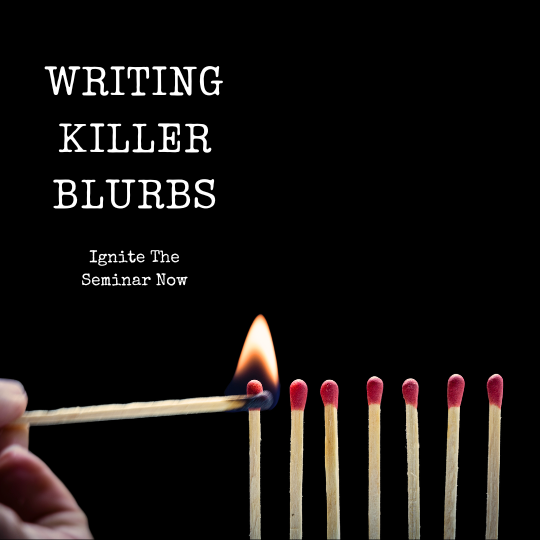Paul Whybrow
Full Member
I'm currently reading Richard Flanagan's 2014 Man Booker Prize winning The Narrow Road To The Deep North. Unusually, I've had to renew this library book beyond its three-week loan period, meaning I've now been reading it for a month.
Normally, I'll devour a novel of 350 pages in a week. My slow progress is nothing to do with Richard Flanagan's writing skills, for he's a brilliant author, it's more that the subject matter is distressing. The story details the atrocities perpetrated by the Japanese against Australian prisoners of war, in forcing them to build the Burma Railway, and how the after-effects haunted them in civilian life. Man's inhumanity to man is always depressing, so I'm finding that I can only tolerate reading this sorry tale in 20 page chunks.
Richard Flanagan is a fascinating character, as he's immensely likeable when interviewed, with ferocious intelligence. I first became aware of him via this BBC documentary, which is worth a look if you have the bandwidth and broadband credit:
He writes in an accessible way, that's also deliberately literary, certainly so far as the internal dialogue of his characters goes, for they do way more thinking than doing. I've read two other novels by him, Gould's Book of Fish and Wanting, (if you're a fan of Charles Dickens, seek it out), and in both, the protagonists endured protracted suffering, so much so, that I started to wonder if Flanagan is sadistic—meaning, that it helps if his readers are masochists.
It's a common piece of advice, that we writers put our protagonist through conflict and peril—after all, if their life is perfectly rosy, why would we, or the reader, care what happens to them? But, how far should we go in portraying their unhappiness, and, perhaps worse, how difficult should the language be that we used to convey complicated situations?
The author of this article, Tegan Bennett Daylight, makes some good points about teaching students who don't have the habit of reading, as they're spoon-fed their information and entertainment by the media, especially social media. It's a real effort for her students to tackle anything that's not 'nice', which requires them to process uncomfortable concepts where it takes patience to read several pages to get the message:
"Spoon-fed, I hear you say? Don’t make me laugh. This is a feast of force-feeding, a Roman orgy of information and assistance, with students helpless and lolling while academics assist them in opening their mouths so the food can be tipped in, and then hold their jaws and help them masticate until it goes down. We keep asking ourselves why this generation are so anxious. They are anxious because nobody lets them do things alone: we intervene before they have had a chance to try, let alone succeed or fail. They never get to feel the limits, or the limitlessness, of their real selves."
I like what she has to say about writing that's hard to understand: "The difficulty is the point."
I've previously stated, that, for me, life is too short to labour through novels that don't engage me in some way, or that are so badly written that I want to lynch the author, literary agent and publisher involved, but my reticence is down to personal taste, not laziness or cowardice.
My own Cornish Detective novels contain gruesome details about the deaths of the victims, as well as complex moral arguments, that readers might dislike. In The Perfect Murderer, a career murderer, serving as a senior detective, had killed one hardened criminal a year for 40 years—murderers, kidnappers, arsonists, child abusers, rapists and drug runners—despicable scum, about whom most people would say "Good", when they heard that they were dead; does this make the murderer a bad man or a justified vigilante for justice?
Have you tackled difficult issues in your stories?
Is some of your writing hard to create and to read, because of what you're describing?
Do you have any favourite difficult authors or books?

Normally, I'll devour a novel of 350 pages in a week. My slow progress is nothing to do with Richard Flanagan's writing skills, for he's a brilliant author, it's more that the subject matter is distressing. The story details the atrocities perpetrated by the Japanese against Australian prisoners of war, in forcing them to build the Burma Railway, and how the after-effects haunted them in civilian life. Man's inhumanity to man is always depressing, so I'm finding that I can only tolerate reading this sorry tale in 20 page chunks.
Richard Flanagan is a fascinating character, as he's immensely likeable when interviewed, with ferocious intelligence. I first became aware of him via this BBC documentary, which is worth a look if you have the bandwidth and broadband credit:
He writes in an accessible way, that's also deliberately literary, certainly so far as the internal dialogue of his characters goes, for they do way more thinking than doing. I've read two other novels by him, Gould's Book of Fish and Wanting, (if you're a fan of Charles Dickens, seek it out), and in both, the protagonists endured protracted suffering, so much so, that I started to wonder if Flanagan is sadistic—meaning, that it helps if his readers are masochists.
It's a common piece of advice, that we writers put our protagonist through conflict and peril—after all, if their life is perfectly rosy, why would we, or the reader, care what happens to them? But, how far should we go in portraying their unhappiness, and, perhaps worse, how difficult should the language be that we used to convey complicated situations?
The author of this article, Tegan Bennett Daylight, makes some good points about teaching students who don't have the habit of reading, as they're spoon-fed their information and entertainment by the media, especially social media. It's a real effort for her students to tackle anything that's not 'nice', which requires them to process uncomfortable concepts where it takes patience to read several pages to get the message:
"Spoon-fed, I hear you say? Don’t make me laugh. This is a feast of force-feeding, a Roman orgy of information and assistance, with students helpless and lolling while academics assist them in opening their mouths so the food can be tipped in, and then hold their jaws and help them masticate until it goes down. We keep asking ourselves why this generation are so anxious. They are anxious because nobody lets them do things alone: we intervene before they have had a chance to try, let alone succeed or fail. They never get to feel the limits, or the limitlessness, of their real selves."
I like what she has to say about writing that's hard to understand: "The difficulty is the point."
I've previously stated, that, for me, life is too short to labour through novels that don't engage me in some way, or that are so badly written that I want to lynch the author, literary agent and publisher involved, but my reticence is down to personal taste, not laziness or cowardice.
My own Cornish Detective novels contain gruesome details about the deaths of the victims, as well as complex moral arguments, that readers might dislike. In The Perfect Murderer, a career murderer, serving as a senior detective, had killed one hardened criminal a year for 40 years—murderers, kidnappers, arsonists, child abusers, rapists and drug runners—despicable scum, about whom most people would say "Good", when they heard that they were dead; does this make the murderer a bad man or a justified vigilante for justice?
Have you tackled difficult issues in your stories?
Is some of your writing hard to create and to read, because of what you're describing?
Do you have any favourite difficult authors or books?




